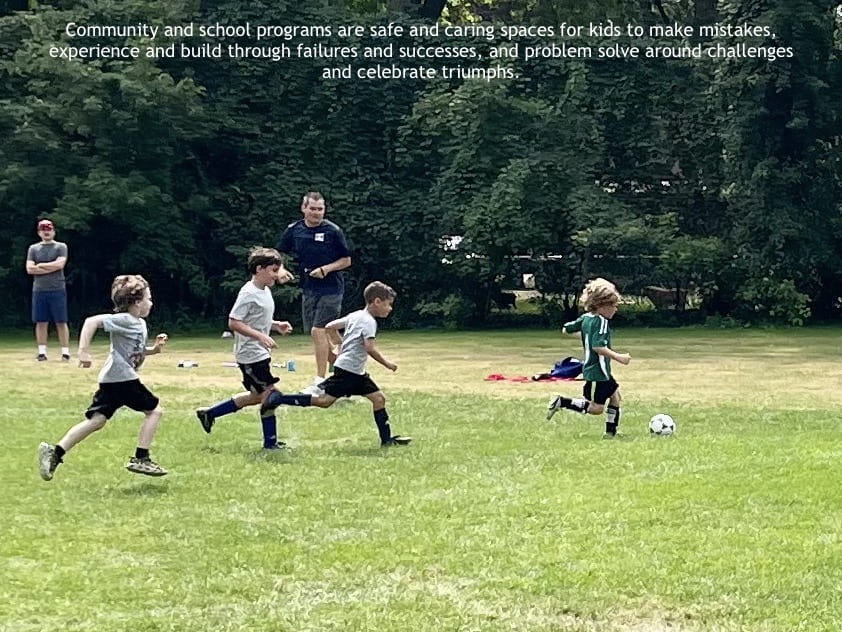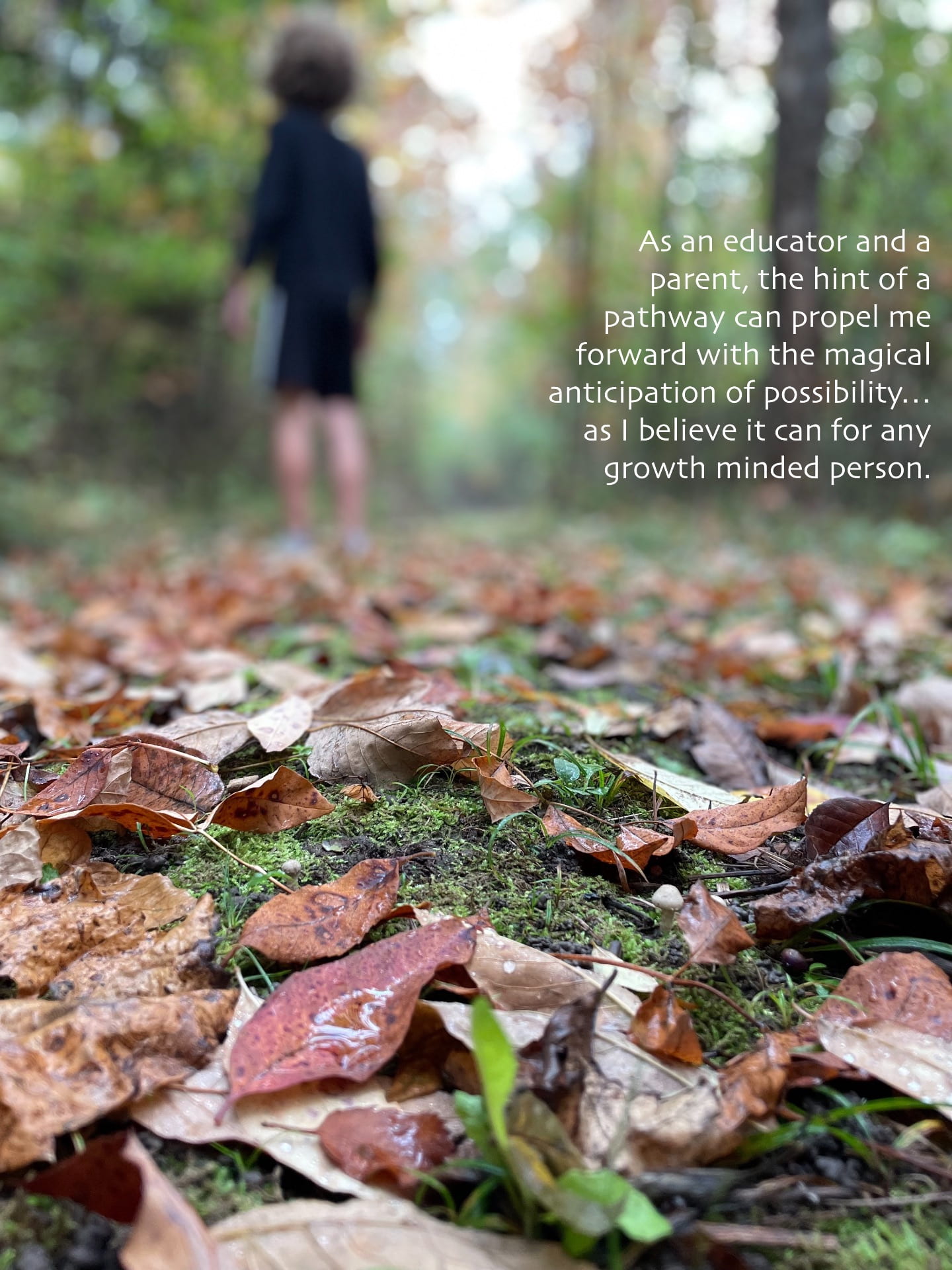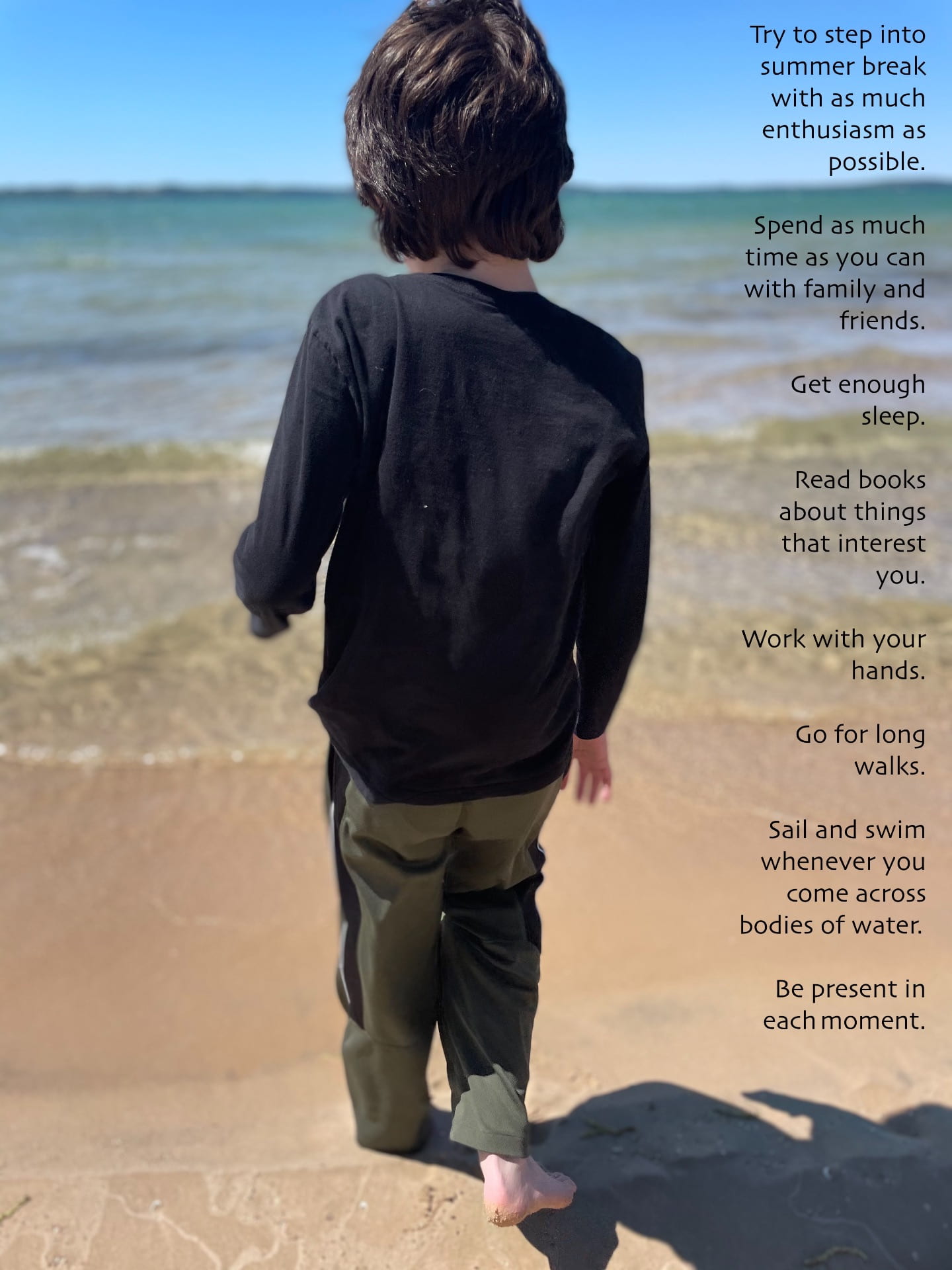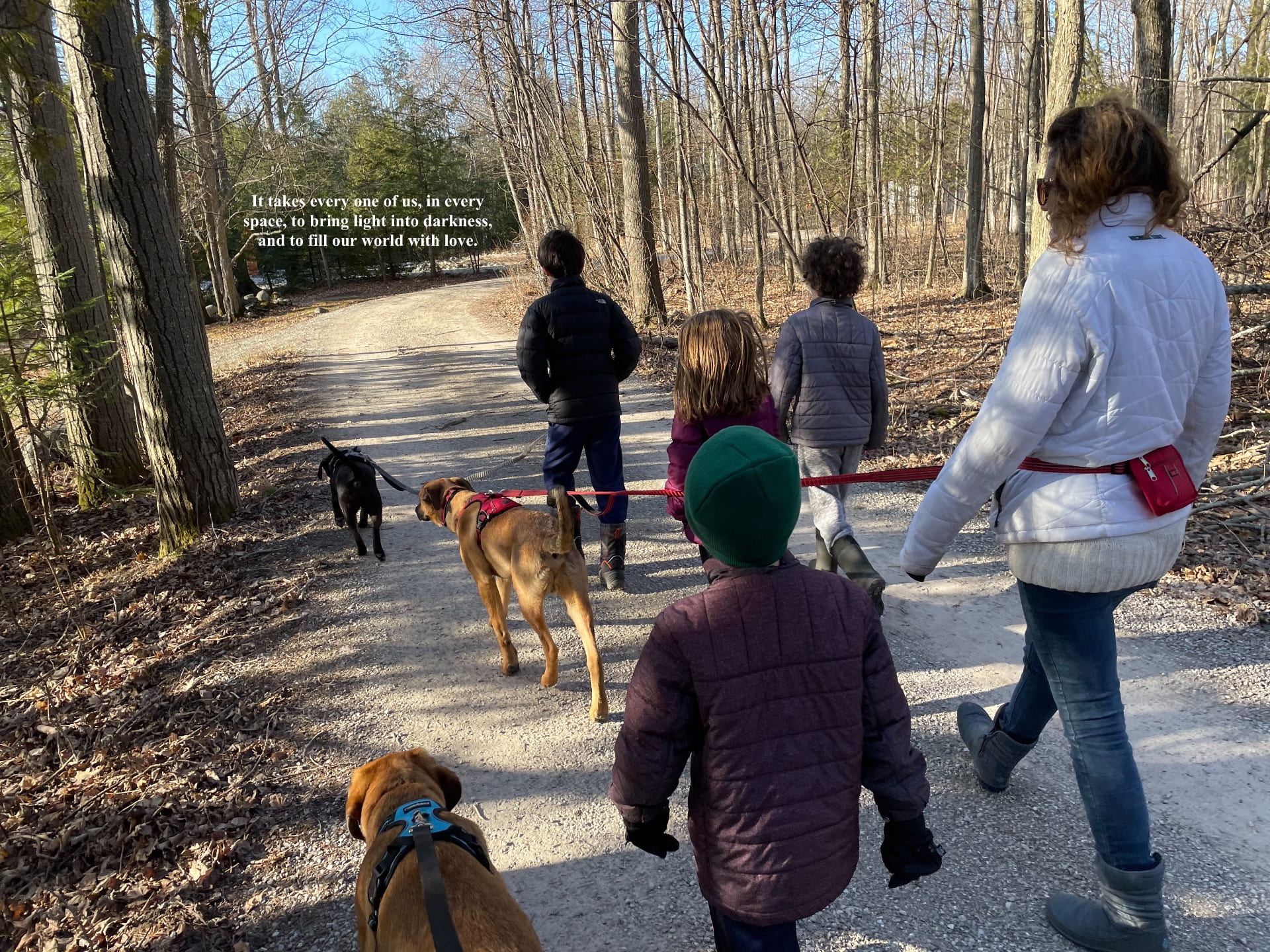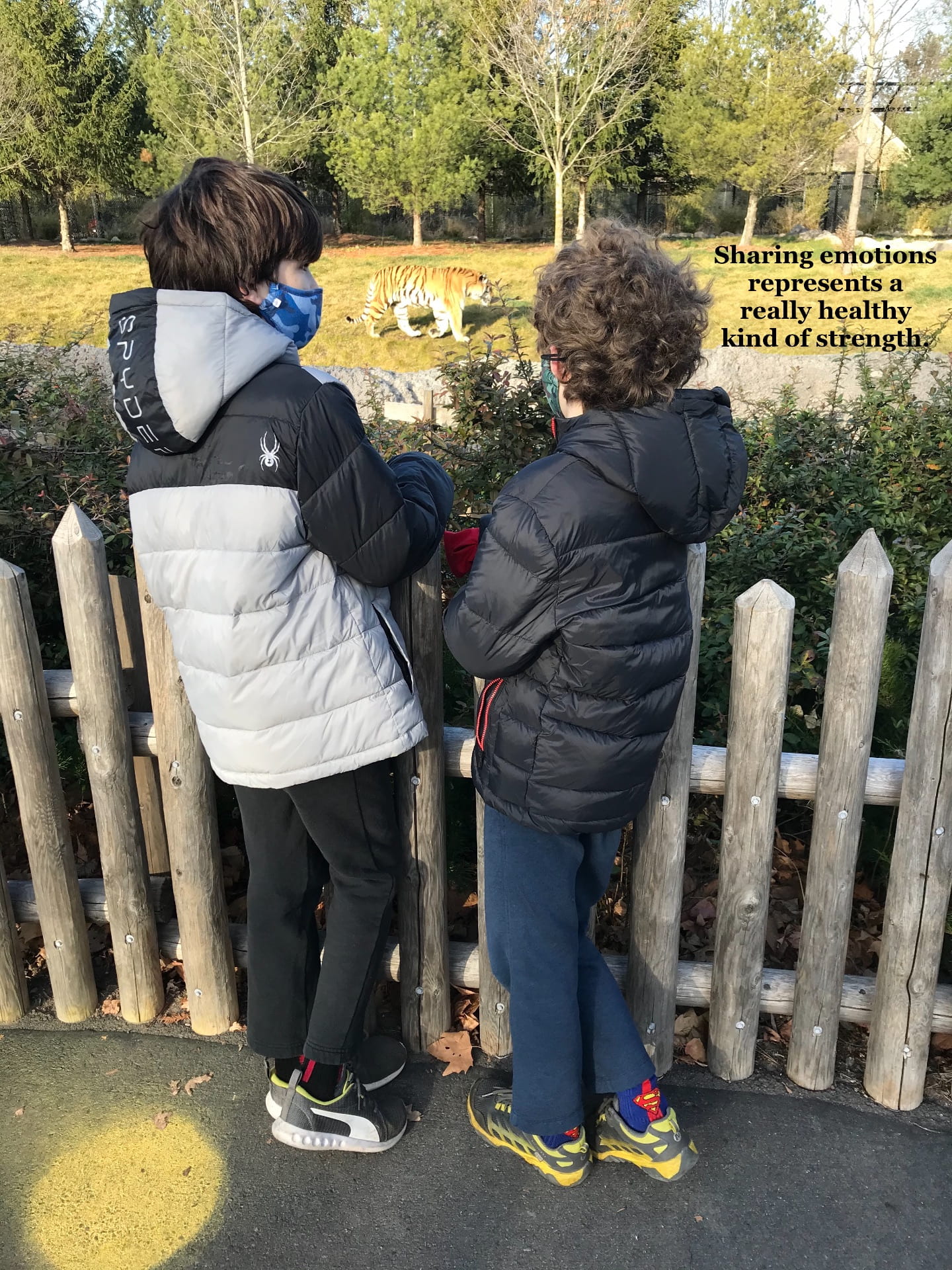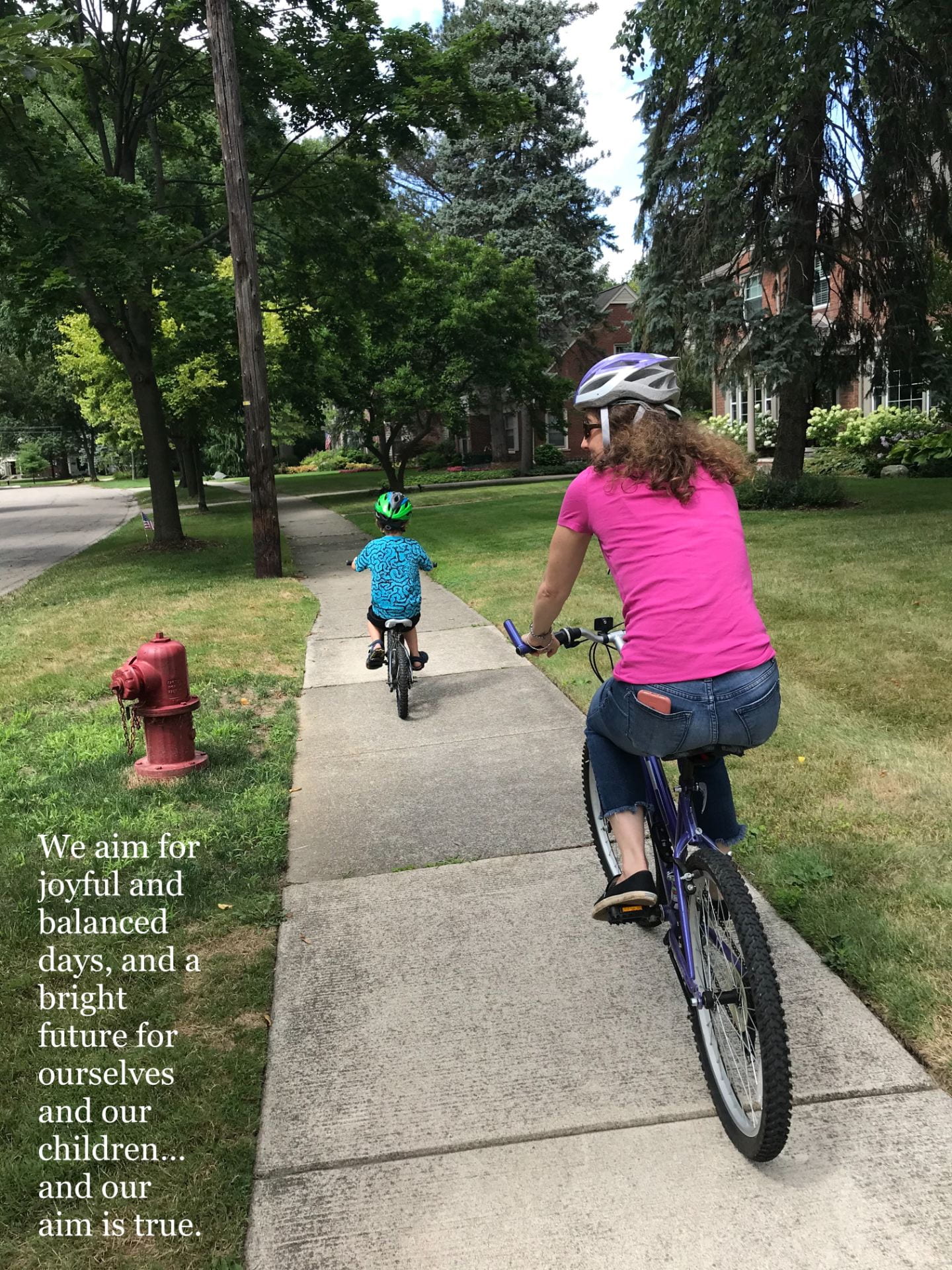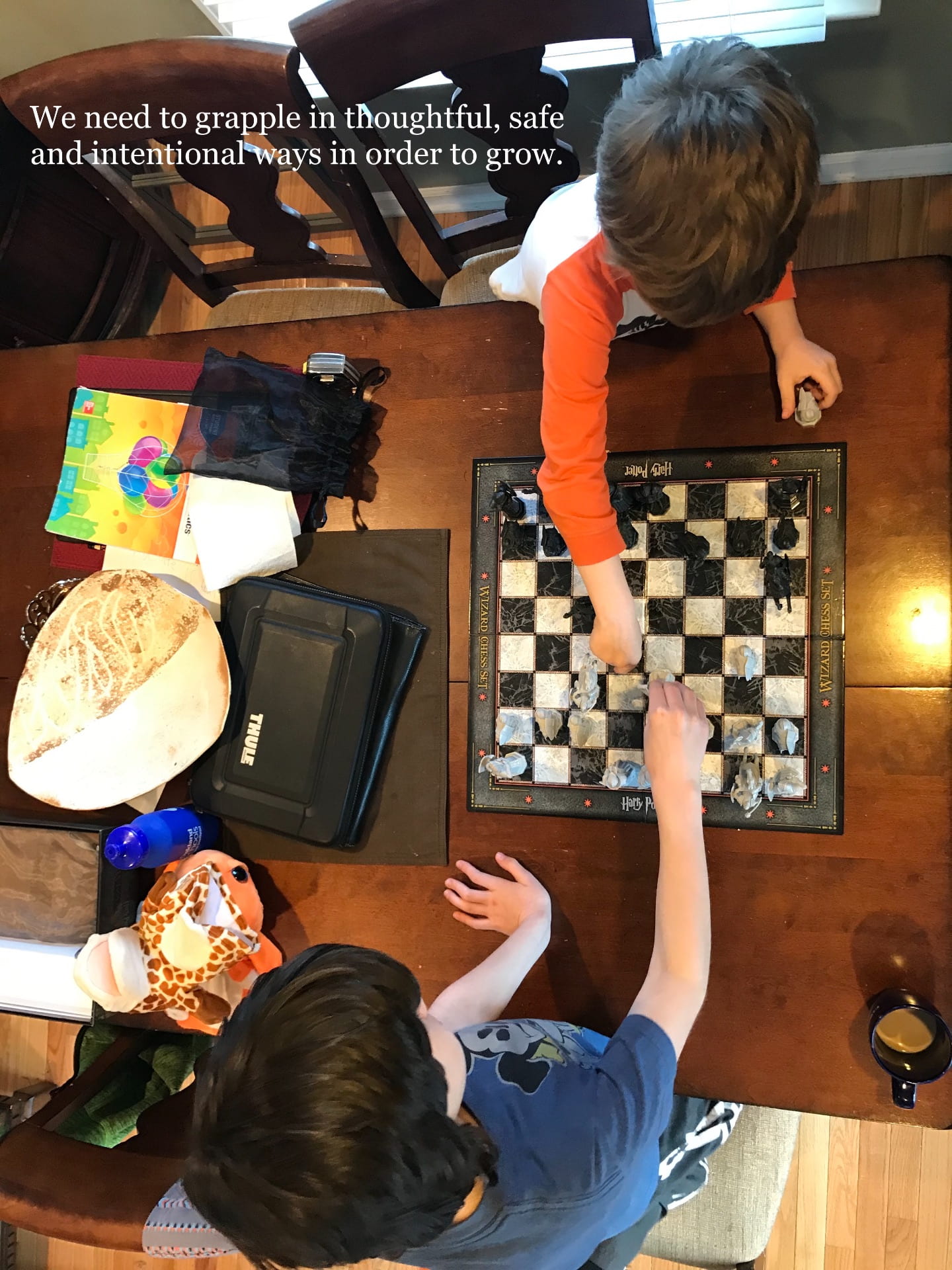
*The names I’m using in this reflection are not the actual names of any children involved. I’m using alternate names to protect privacy.
Confusion, Worry And Fear
A few weeks into the new school year our youngest child, a six-year-old starting first grade, came home from school with a troubled mind. I could see that he was deep in thought. As we went about our typical after school routine he presented as worried and distracted.
Before long he asked if he could speak with me alone. We went outside together, where he began to reluctantly unfold a story of two children at his school with special needs. As he told me about the kids, tears formed in his eyes.
First he told me about being scared. In his words, he said that Brandon was aggressive on the playground. He told me that he sees Brandon approaching kids and insisting on playing with them in ways that frightened him.
He said that Brandon gets physical with kids; that he uses his hands and his body in ways that make him nervous and uncomfortable; that Brandon communicates in ways that are different from how the typically functioning kids he’s used to playing with communicate, and that he’s worried about having to confront the potential eventuality of Brandon approaching him on the playground. In his way, he asked for permission to not have to engage with Brandon as school.
Knowing our child, I could see the internal struggle that this ask, and this need presented for him. He’s an empathic, compassionate person. I could see him wishing he didn’t feel this way, feeling bad about himself, and feeling bad for Brandon.
My Brain Won’t Let Me
Next he told me about Marvin. He told me that Marvin is in his class. He said he could see that Marvin needs friends but doesn’t have any. He told me he’s not scared of Marvin because Marvin doesn’t behave in ways that frighten him, but in ways that demonstrate his struggles with communication and socialization. He told me that he thinks he could be the friend Marvin needs, but that whenever he thinks about becoming Marvin’s friend, his brain won’t let him.
No two children are the same. That said, most children’s unique qualities don’t overtly differentiate them from the group. At least not in the eyes their peers. Most children, regardless of gender, learning style, energy level, interests, developmental readiness, capacity for age-appropriate communication, and lived experiences don’t stand out in ways that make them unapproachable. Brandon and Marvin are both visibly unique from most other kids.
As parents, guardians and educators, we can tune in to subtle and explicit differences between children. Children, with their concrete, relatively inexperienced world views, tend to be less adept at identifying subtle differences, and they tend to be hyper aware of explicit ones.
To no fault of their own, children tend to notice when other children behave in ways that appear “out of the ordinary,” and because they don’t have the knowledge or experience to process why a peer would look and sound so different, they can easily fall into worry and even fear around socializing with kids who they identify as acutely different.
Our child’s description of the struggle he’s experiencing around wanting, and attempting to support a friend with special needs (“my brain won’t let me”), tells us a lot about a critical and persistent social emotional challenge felt by all of children.
We know that, like our child, both Brandon and Marvin need to experience genuine friendships. We know that developing genuine friendships with people who present as different from us, whether vastly or subtly, is mutually beneficial.
We also know that diminishing classroom, school and community cultures can quickly and easily (while often unknowingly and inadvertently) be built around kids who’s communication and behavior are outside of the norm. This is an incredibly important point for parents, guardians and educators to be aware of as we work hard to listen to and guide our children around challenges that surface at school.
When children come home with negative reports and concerns about their peers, we can help them focus on an “each in our own way” lens by exploring context with them. We can remind them that each person views the world in a unique way, based on who they are and what they’ve experienced, and that our abilities and world-views tend to guide our thoughts, feelings and actions.
We can teach them that we’re all learning all the time, and that generally, people want to do good things and be nice. When our friends aren’t being their best selves it can often be because they don’t know how, or because they’re hurting. Sometimes it’s challenging, but patience, understanding and kindness can help.
Positive classroom, school and community cultures can lift kids up and build bridges to health and achievement, while negative classroom, school and community cultures, pointedly focused on the expressions and actions of a particular child, can deteriorate that child’s self image, limit their potential, and engrain increased worry and fear in others.
Fortunately, as parents, guardians and educators, we have the power to perpetuate change in this area, to build paradigms of understanding around diversity, to help our children uncover the inherent foundations of compassion that exist within each of them, to drive equity, and in doing so, to enhance their lives and the world in which we all live.
Not Answers…Opportunities
When we teach our children to embrace diversity, to move toward rather than away from that which is different and/or unknown to them, to be reflective in their processing of communication and interactions with others, to consider multiple perspectives, to seek understanding (even through worry and fear), and to pull from kindness where frustration persists, we give them opportunities to expand their horizons.
When we guide children through problem solving in any area we provide them with safe, supportive spaces to grapple with specific challenges. When we give children safe, supportive spaces to grapple with specific challenges we provide them with experiences that can support the development of their ability to grapple with other challenges.
Children become better problem solvers when they have our permission to work on solving the problems that are in front of them. Along with that permission, they benefit from our support, our love and our guidance.
A Solid Foundation For A Lifelong Journey
Our child continues to tell me that he’s nervous around Brandon and that he still hasn’t approached Marvin or become his friend. He also continues to tell me that he thinks he can be the friend that Marvin needs.
The other day he told me that he thinks the first step will be introducing himself. He said, “We’ve never even met…maybe if we met we would become friends.” He’s outlined multiple pathways to officially meeting Marvin, from asking his teacher to introduce them to approaching him on the playground. He continues to grapple and I continue to support.
I don’t have the answers. While I hope they do, they may never become friends. I nudge but I don’t push. I listen and I affirm the reality of swirling emotions. I don’t know how to ease the intensity of those emotions or impart a sense of comfort around this or any of the multitude of difficult childhood challenges.
I do know that every child is living a life in which developing skills of compassion, along with the skills needed to communicate, collaborate, and otherwise engage with one another, is a potential pathway to increased joy and balance for them and for those who they meet along the way.
I know that we serve children well when we drive cultures of acceptance in our classrooms, school and communities, and aid our children in understanding that they can and should love and embrace others, even those who behave in ways that confuse and worry them.
When we help them see that the personalities, inherent capacities and lived experiences of those around them contribute to their thoughts, feelings and actions, we help them put behavior into context and better manage their interactions and relationships.
As with all challenging journeys, the complex pathways of supporting our children’s positive progress and well-being are long and winding, they’re sometimes shrouded in mist, and they’re often confusing. I would suggest that an “each in our own way” lens is solid foundation for achieving healthy outcomes, for them and for us.
